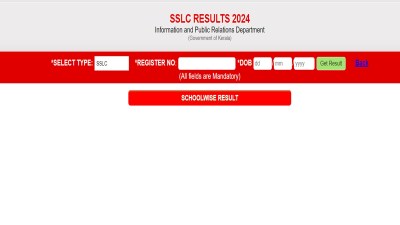- India
- International
Foreign investors eye domestic debt, RBI to tighten norms
Guernsey is a tax haven that lies within the common travel area of British Isles and part of the European community for the purposes of free trade in goods.
 The RBI has, however, taken note of the issue and is now looking to remove the anomaly in regulations.
The RBI has, however, taken note of the issue and is now looking to remove the anomaly in regulations.
A $1-billion investment by Deutsche Bank through UTI MF’s Guernsey-based subsidiary in the Indian debt market in May this year, allegedly skirting FPI investment limits, has alarmed banking regulator RBI which is looking to tighten regulations. The capital markets regulator Sebi, however, finds nothing amiss.
In February 2015, the RBI and Sebi issued circulars that restrained Foreign Portfolio Investors (FPIs, formerly called FIIs) from investing in corporate bonds with residual maturity of less than three years. But Deutsche Bank and some other entities invested around $1 billion in Indian debt instruments (including short-term instruments), through UTI International that has deemed FII status.
Industry insiders say that while UTI MF is the only fund house to have that status, the Deutsche Bank, by investing through them, could also bypass the investment limits applicable for FPIs on investment in government securities ($30 billion) and the restriction on investing in short-term instruments.
[related-post]
The RBI has, however, taken note of the issue and is now looking to remove the anomaly in regulations. In response to a questionnaire sent by The Indian Express regarding the investment, the RBI replied: “We are aware of the transaction. Investments by FPIs in mutual funds fall under the corporate bond limit of USD 51 billion. We are, however, reviewing the regulation to ensure greater clarity in this area and that there is no room for any ambiguity.”
The Sebi, however, does not find anything amiss in the Deutsche Bank transaction.

“The FPI regime commenced with effect from June 01, 2014, whereby the erstwhile FIIs, Sub Accounts and QFIs have been merged into a single investor class namely FPI. All such FIIs and Sub Accounts have been permitted to buy, sell or deal in securities till the expiry of their current registration. These FII/SA/QFIs are treated as deemed FPI. The category of FPI include Banks, Sovereign Wealth Fund, Mutual Funds etc. As per Regulation 21(1) of SEBI (FPI) Regulations, 2014, an FPI is allowed to invest in certain securities including units of mutual funds,” Sebi said.
But there are other ways that FPIs are investing beyond their prescribed limit to benefit from high interest rates in India. Several fund houses have been facilitating FPI investment into their debt funds under the corporate bond category where the FPI limit stands at $51 billion and the money can be parked in gilt fund, corporate bond fund and funds investing in both. As far as direct investment into government securities is concerned, the FPI limit stands at $30 billion.
Experts say that ideally FPI investment into gilt fund of mutual funds should be clubbed with the overall gilt limit of $30 billion but there is gap in regulation and FPIs are also investing into Indian Gilt through mutual funds under the corporate bond limit.
The UTI MF, while accepting that such a transaction did take place, maintained that it was well within the regulation. “We have recently invested approx $1 billion in a wide range of Indian domestic debt instruments across Government and Corporate securities as per the approved regulations/guidelines,” the UTI said in an email statement. It, however, pointed out that “There are other mutual funds, who have raised money from FII/FPI/subaccounts in their debt-oriented schemes.”
While Deutsche Bank declined to comment on the issue, the UTI said that the investment was managed by UTI International Ltd, which is a wholly owned subsidiary of UTI AMC and has an AUM of $3.6 billion as of April 30, 2015. “UTI International being an offshore entity, domiciled in Guernsey, has an FII/FPI license under which these investments are made,” it added.
Guernsey is a tax haven that lies within the common travel area of British Isles and part of the European community for the purposes of free trade in goods.
Asked if RBI and Sebi have raised any objection to the investment, UTI MF said UTI AMC had not received any objection or stop-notice either from RBI or Sebi.
May 08: Latest News
- 01
- 02
- 03
- 04
- 05









































